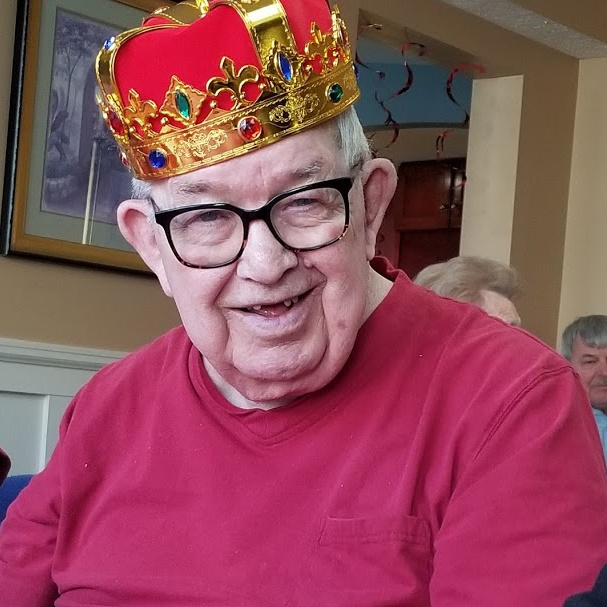Charlotte Memory Care: Specialist Assisted Living for Memory Support
Charlotte Memory Care: Specialist Assisted Living for Memory Support
Blog Article
What to Expect in Memory Treatment: A Comprehensive Overview to In-Home Solutions
As family members come to terms with the obstacles of caring for a person with memory loss, the world of at home solutions uses a lifeline of support and specialized care. Comprehending what to prepare for in memory care is essential for making certain the wellness of both the private with memory disability and their caretakers.
Daily Regimens and activities
Taking part in structured day-to-day activities and regimens is a basic part of providing high quality look after individuals in memory care centers. These activities are meticulously designed to deal with the particular requirements of locals with cognitive impairments, such as Alzheimer's disease or dementia. Daily regimens play a crucial duty in preserving a sense of knowledge, security, and purpose for people in memory treatment.

Additionally, everyday routines aid people in memory treatment facilities to feel even more oriented and less nervous. Consistency in tasks and timetables can decrease complication and frustration, providing a sense of stability and convenience. Caregivers and staff participants play a vital role in promoting these tasks, making sure that each resident gets customized and compassionate care tailored to their distinct preferences and abilities.
Specialized Care Solutions
Within memory treatment facilities, specialized treatment solutions are vital to resolve the special demands and challenges encountered by people with cognitive problems such as Alzheimer's illness or mental deterioration. These services are developed to supply customized support that deals with the certain needs of locals handling amnesia. Specialized care services in memory treatment facilities typically include personalized treatment strategies, help with tasks of everyday living, medicine monitoring, and behavioral therapies focused on improving high quality of life and minimizing distress.
Furthermore, memory treatment centers commonly offer structured programs and activities particularly created to promote cognitive function and advertise social involvement among citizens. These tasks may consist of memory-enhancing workouts, sensory excitement therapies, and reminiscence therapy sessions. In addition, specialized care solutions commonly involve routine monitoring of citizens' health and well-being by qualified staff participants that are outfitted to manage the unique difficulties connected with cognitive decrease.
Safety Measures and Environment
Implementing rigid precaution and creating a protected environment are vital concerns in memory treatment centers to guarantee the well-being and defense of residents with cognitive disabilities. Safety in memory care starts with protected building style, consisting of secured doors and kept track of access to avoid homeowners from wandering outside without supervision. Furthermore, facilities commonly have security system and surveillance cameras to keep an eye on homeowners and react quickly to any emergency situations. Inside, the setting is thoroughly planned to minimize dangers, with handrails, get bars, and non-slip flooring to prevent falls. Furniture is prepared to assist in very easy navigation, and potentially harmful items are secured away or eliminated. Team member get specialized training in dealing with emergency situations, de-escalating challenging habits, and ensuring the safety and security of citizens in all times. Routine safety analyses are conducted to recognize and resolve any potential hazards immediately. By focusing on safety actions and keeping a protected environment, memory treatment centers objective to supply a safety and encouraging setup for individuals with cognitive impairments.
Communication and Engagement Approaches
With a focus on enhancing and fostering purposeful communications my explanation lifestyle, reliable interaction techniques play a crucial function in supporting individuals in memory treatment centers. Interaction in memory care involves understanding the distinct demands of residents who may have cognitive disabilities like dementia. Easy language, clear instructions, and non-verbal cues such as motions and face expressions are vital tools for effective communication. Caretakers must come close to residents with patience, respect, and compassion, producing an encouraging setting where people feel recognized and valued.
Engagement strategies are additionally essential in memory care, helping residents remain active, boosted, and linked to their environments. Activities like songs treatment, art classes, memory sessions, and sensory stimulation can stimulate memories, boost state of mind, and promote socializing. Customizing tasks per individual's abilities and passions is key to fostering involvement and a sense of success. In addition, integrating acquainted objects, photos, and songs from the person's past can provide convenience and boost positive memories. By prioritizing individualized communication and interaction strategies, memory treatment centers can boost the total wellness and quality of life for their residents.
Caretaker Support and Resources
Given the critical function caregivers play in implementing effective interaction and involvement strategies for residents in memory treatment centers, providing appropriate support and resources is necessary to ensure the health of both the caretakers and the individuals under their treatment. Caregivers in memory care settings usually deal with one-of-a-kind difficulties that can impact their physical and emotional health. To deal with these challenges, different support group and resources are readily available to help caregivers in offering the most effective feasible treatment.
One vital type of support is caregiver education and learning and training programs. These programs equip caretakers with the necessary skills and expertise to effectively manage the symptoms and actions related to amnesia. In addition, support system provide caretakers the opportunity to get in touch with others that are experiencing similar challenges, offering a sense of area and understanding.

Conclusion

Involving in structured everyday tasks and regimens is a fundamental part of providing high quality treatment for individuals in memory care centers.Within memory treatment facilities, specialized treatment solutions are vital to address the unique demands and challenges dealt with by people with cognitive disabilities such as Alzheimer's illness or dementia. Specialized treatment solutions in memory care centers usually include personalized care strategies, support with activities of daily living, medicine administration, and behavior therapies aimed at informative post improving top quality of life and reducing distress.
Provided the critical function caretakers play in applying efficient interaction and involvement techniques for citizens in memory treatment centers, offering sufficient support and resources is vital to ensure the well-being of both the caregivers and the individuals under their care. Daily tasks, specialized treatment services, safety measures, communication techniques, and caregiver support are key elements of in-home memory care.
Report this page